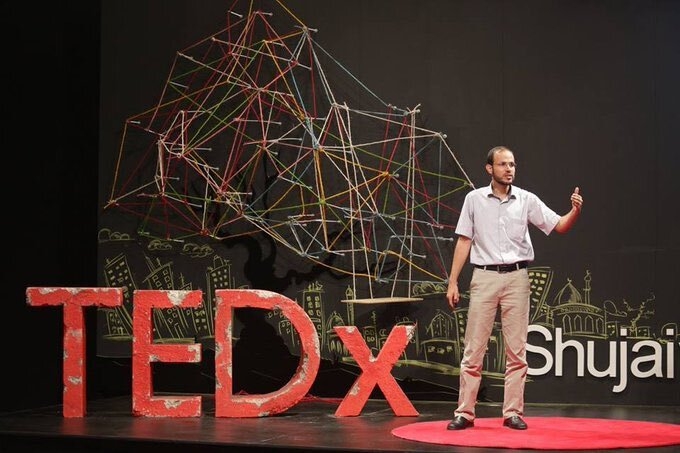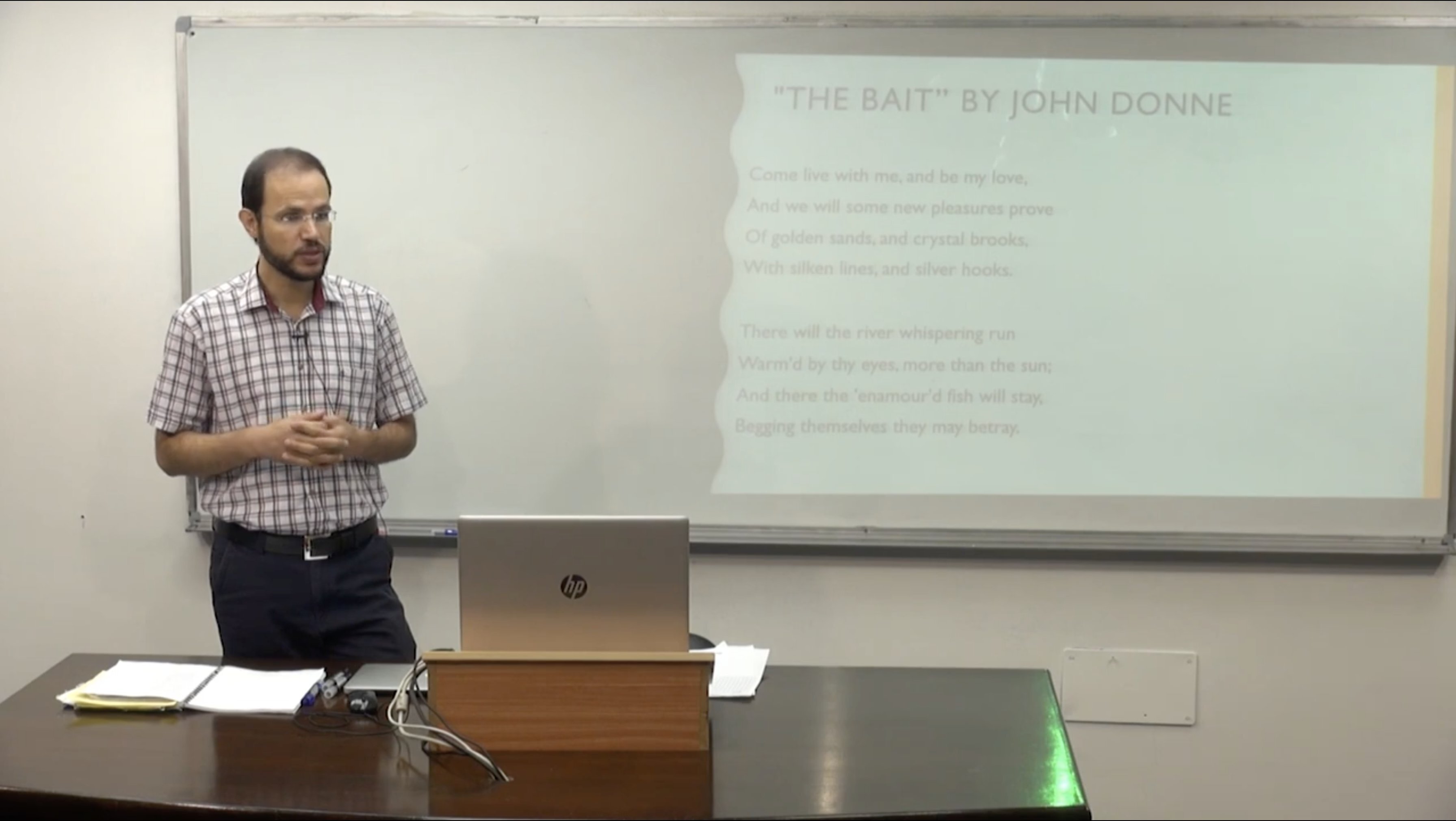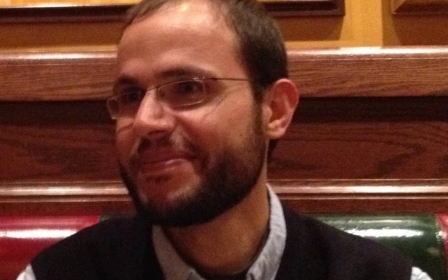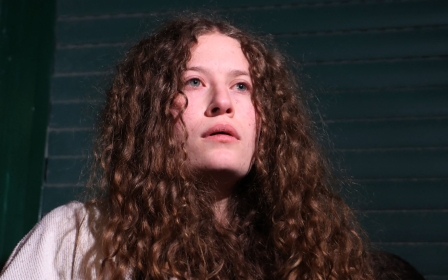Refaat Alareer: A courageous voice that will never die

Palestinians worldwide, especially in Gaza, are mourning the loss of Refaat Alareer, an influential academic, translator, poet and activist, who was killed in an Israeli air strike on his sister's home in Gaza City on 7 December. He was 44 years old.
A respected scholar of English literature at the Islamic University of Gaza, Refaat gained equal prominence as a courageous voice that represented a generation of Palestinians living in the besieged Gaza Strip and who bore witness to recurring Israeli attacks.
Through his writings, including Gaza Writes Back, an anthology he edited, Refaat inspired young Palestinians to resist Israeli oppression and occupation using the power of words. Alongside Palestinian author Laila el-Haddad, he also edited Gaza Unsilenced, a book of essays, poems and other creative contributions from writers within and outside of Gaza reflecting on the pain, loss and international protests to Israel's 2014 war.
In his truncated life, Refaat was on a mission to give his students the tools to reclaim their narrative and challenge western mainstream media. He encouraged those who studied and spoke English to speak directly to a western audience rather than have a non-Palestinian speak on their behalf.
New MEE newsletter: Jerusalem Dispatch
Sign up to get the latest insights and analysis on Israel-Palestine, alongside Turkey Unpacked and other MEE newsletters
'We are not numbers'
For Refaat, words were a way to break free from the crushing Israeli blockade. He believed in the power of storytelling and helped establish We Are Not Numbers, a project that challenged the dehumanisation of Palestinians being reduced to death tolls in media reports. He worked to tell the stories of the people behind those figures.
During the current Israeli assault on Gaza, which has claimed more than 17,500 lives, with thousands more missing, and despite the killing of journalists, artists, and intellectuals, Refaat continued to report on the bombardment through his social media posts, articles and interviews.
Follow Middle East Eye's live coverage for all the latest on the Israel-Palestine war
On 4 December he posted on X, formerly Twitter: "We could die this dawn." Three days later, Israel killed Refaat in an air strike that also claimed the lives of his sister, her husband and their four daughters.
It is no exaggeration to say that Refaat used almost every lecture to encourage his students to write about the occupation and our struggle as Palestinians in Gaza
Amid all the Israeli massacres in Gaza, the killing of Refaat was a devastating shock to a lot of Palestinians and supporters around the world, who have been mourning his loss on their social media platforms and various news sites.
Abeer al-Hayek, who worked closely with Refaat, said: "Refaat wasn't just a dear friend. He was a profound thinker and a generous source of knowledge. He left an indelible mark on everyone he encountered. The world will deeply feel his absence, longing for his stories and expertise. We'll miss him greatly."
Another of his colleagues, Fedaa Mousa, described him as "someone we turned to for hope and understanding, his gaze reached the soul and gave everyone a feeling of importance. We will never be the same without him. With so much love and loss we say: May he rest in peace and may Allah give us patience."
'Let it be a tale'
Just as his death is personal to many who knew him in Gaza, Refaat's passing is personal to me, too. He was my friend who later became my professor and then colleague.
I met Refaat for the first time in 2006 as we were both travelling outside Gaza through the Rafah crossing. He was going to the UK to start his master's degree while I was going to the US as a part of an exchange programme.
It was the start of the Israeli blockade imposed on Gaza, and leaving the enclave was an impossible mission. I still remember how Refaat was always joking and laughing. He had a unique sense of humour and always managed to make us laugh no matter what we were going through.
A few years later, Refaat became my professor at the university. His lectures were not in any way traditional. It is no exaggeration to say that Refaat used almost every lecture to encourage his students to write about the occupation and our struggle as Palestinians in Gaza. In one class I took with him, he even gave extra credit to students who wrote their own stories about their lives in Gaza.
Even as I write these words, it is still difficult to fathom that Refaat is gone. Yet I know that sharing these details about Refaat, a dynamic person and not simply a casualty number, is what he would have wanted us to do. Just as he asked, we shall do. We shall always tell his story and the stories of the innocent people whose lives and dreams were assassinated by Israeli war machines.
With limited internet access, Refaat published on 1 November a now-famous poem on X, which he pinned at the top of his page, sharing how he wished to be remembered, if he must die:
Not only will his death be a tale as he wished, but his life will remain a tale of a hero who knew what the power of words meant and how to wield them as a tool of resistance.
Amid relentless Israeli bombs, Refaat affirmed during a livestream - his final interview - his resistance to an Israeli incursion: "I am an academic. The toughest thing I have at home is an Expo marker. But if the Israelis invade... I am going to use that marker even if that is the last thing that I do."
Israel killed Refaat, but people like him are very hard to die. Not only did he leave his words, poems, interviews, books, posts, and stories, but he also left behind him a generation of writers and activists who will carry on the powerful work he started and never be silenced.
Refaat's voice will never die as Gaza will always write back.
The views expressed in this article belong to the author and do not necessarily reflect the editorial policy of Middle East Eye.
Middle East Eye delivers independent and unrivalled coverage and analysis of the Middle East, North Africa and beyond. To learn more about republishing this content and the associated fees, please fill out this form. More about MEE can be found here.






